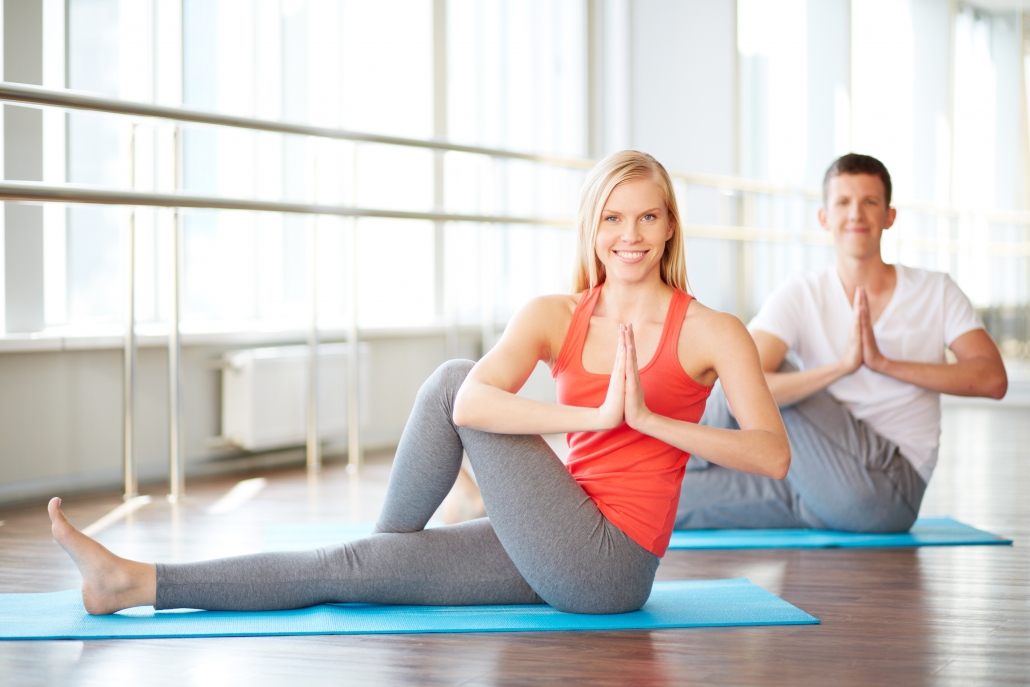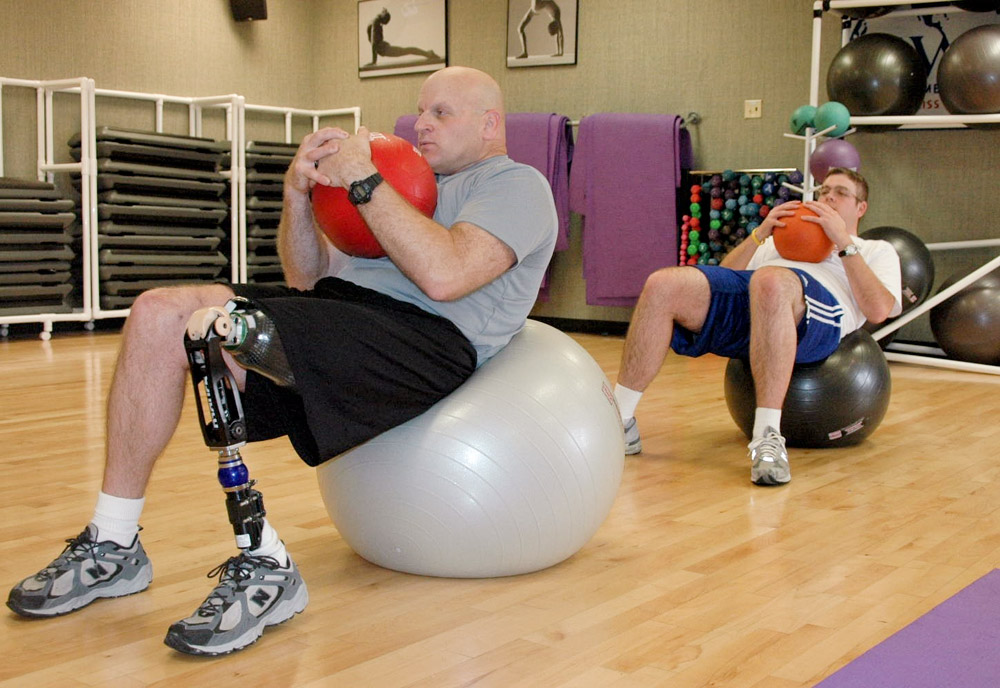Exercise has a lot of incredible and surprising benefits that can enhance your mood, increase your brain function, and improve your mental health. You’ll be amazed with the life-changing results you can gain through regular physical activity. Exercising is a wonderfully healthy habit for both the body and the brain.
Anxiety & Depression
In the United States, anxiety disorders affect more than 40 million adults, and 1 in 10 adults live with depression. Research suggests that working out can be an extremely effective way to lessen the symptoms associated with these disorders. According to Dr. Michael Craig Miller, an assistant professor of psychiatry at Harvard Medical School, “[e]xercise supports nerve cell growth in the hippocampus, improving nerve cell connections, which helps relieve depression . . . For some people [exercise] works as well as antidepressants, although exercise alone isn’t enough for someone with severe depression.”

With sustained, long-term exercise, nerve cells begin to grow and healthy brain function increases. Additionally, physical activity releases endorphins, one of the body’s ‘feel-good’ chemicals that enhances mood. This is why, according to one study, people who regularly exercise are 25% less likely to develop anxiety or depression symptoms within the next 5 years.
Why Exercising Can Be Difficult
Exercising can be particularly difficult for people living with anxiety and/or depression. These disorders can drain your motivation and energy, as well as cause uncomfortable physical symptoms like sore muscles, appetite loss, and fatigue. Since getting started can be a challenge, many experts recommend short, easy walks as a jumping off point. Going on just a 10 minute walk a day is a great start, and can one day lead to 45 minute long walks and other physical activities.
Exercises for Anxiety & Depression
Any type of physical activity is good for alleviating the symptoms of anxiety and depression, but some exercises are more ideal for treating these disorders than others. Research shows that people practicing yoga experience significantly decreased stress and less anxiety. Additionally, yoga classes often focus on deep breathing, which can help lower the heart rate and clear the mind.

Like yoga, running and cycling are also said to have meditative effects on the mind. These exercises are great for releasing endorphins and boosting mood. If you’re able to hike or cycle in a scenic, wooded area, that’s even better. Studies show that walking in nature could significantly decrease your risk for depression.
Insomnia
Not being able to fall asleep is a problem that affects millions of Americans every year. Insomnia can lead to fatigue, depression, increased blood pressure, and an inability to concentrate. People suffering from chronic insomnia may be tempted to use sleeping pills to alleviate their symptoms, but these can be habit-forming, and become less effective over time. Exercise is a natural remedy for insomnia that’s good for both the body and brain. Regular physical activity has been shown to help with sleep in a number of ways.

Working out makes it easy to fall asleep for obvious reasons — your body is physically tired and your mind is more relaxed. There are also other, more complicated factors at play. Physical activity releases endorphins, which can improve your ability to fall asleep fast. Exercise also affects your circadian rhythm and raises your overall body temperature, which promotes sleep.
Exercises for Insomnia
Some experts believe that working out at night or in the evening is the best way to alleviate insomnia. This makes sense, because you’ll be particularly exhausted and warmed up when you go to bed. Other fitness experts, however, insist that morning cardio is the best treatment for insomnia. They reason that working out too close to bed may elevate your heart rate and energize your body, making it difficult to fall asleep to soon after. Regardless of what time of day you choose to exercise, there is a positive correlation between physical activity and healthy sleep patterns.
Stress
Dealing with stress is a part of everyday life, but chronic, unmanaged stress can be harmful to the body and the mind. In fact, 43% of adults live with adverse health affects caused by stress. Stress increases blood pressure, causes headaches, and can worsen the symptoms of other diseases. One of the most important mental health benefits associated with exercise is stress relief.

Physical activity alleviates stress by releasing endorphins. Endorphins are natural painkillers that reduce anxiety and create the nice feeling that we know as happiness. Regular exercise increases endorphin levels and lowers the level of stress hormones in the body.
Exercises for Stress
Any physical activity that increases your heart rate and releases endorphins will be sure to relieve the stress that you’re feeling. Jogging, cycling, and lifting weights will all leave you with an exercise ‘high’ that keeps you feeling satisfied and relaxed. Many experts also recommend martial arts or kickboxing for stress relief. These types of exercises promote self-discipline and can be a great place to work out anger or frustration caused by stress.
PTSD & Trauma
It’s estimated that 1 person out of every 13 people in the United States will develop post-traumatic stress disorder (PTSD) at some point in their lives; furthermore, over 70% of Americans have experienced a traumatic event. Living with trauma can be extremely debilitating, and can cause intrusive thoughts, anxiety, and an avoidance to triggering situations. One study concluded that regular exercise was effective at reducing these PTSD symptoms for people living with the disorder.
Why Exercising Can Be Difficult
Many people with PTSD actively avoid working out. When you’re exercising, your heart races, you may find it challenging to catch your breath, and your body may be ‘hyper-aroused’. These side effects of exercising are also the symptoms of an anxiety attack. For someone with PTSD, experiencing the bodily symptoms of anxiety can trigger a real anxiety attack. For this reason, many people living with PTSD and trauma avoid exercising altogether.
Exercises for PTSD & Trauma
Talk with your doctor and/or therapist before beginning an exercise program, especially if you’re concerned about triggering flashbacks or an anxiety attack. Working with a healthcare professional is a great way to set realistic and rewarding fitness goals.

Many people living with PTSD have embraced an active lifestyle to lessen their symptoms. Repetitive, straight-forward activities, like running, lifting, and swimming, are all great exercises for someone with the disorder. Other people with PTSD thrive in yoga classes, where there is a feeling of community and elements of mindfulness and relaxation.
Memory & Focus
Do you often struggle with your memory or have difficulty concentrating on a task? We may think of focus and memory as concepts that exist only in the mind, but the truth is we can affect them with bodily activity. Research suggests that living a sedentary lifestyle could cause cognitive decline. Exercise is great for all of the muscles in your body, including your brain. Being physically active improves your memory, focus, attention span, and ability to problem solve.
Self-Esteem
We live in a world of social media, photoshop, and online bullying, so it’s no surprise that issues with self-esteem and self-confidence are so prevalent. According to one study, 4 out of every 5 women struggle with confidence and self-esteem. These body image issues are more than simply feeling bad about yourself — they can be downright debilitating. It’s estimated that more than 70% of girls between the ages of 15-17 avoid attending school or other public activities due to shame and a lack of confidence.

Exercise can improve self-esteem for a number of reasons. For one thing, your levels of confidence can be directly affected by your mood. When you work out and release endorphins, you’ll start feeling good in general and also feeling good about yourself. As you exercise more and become more skilled and competent, your self-esteem will raise even higher. Feeling accomplished, capable, and successful are great ways to raise your confidence. Eventually, when you begin seeing physical results, you can take pride in your efforts and gain self-esteem through an improved body image.
